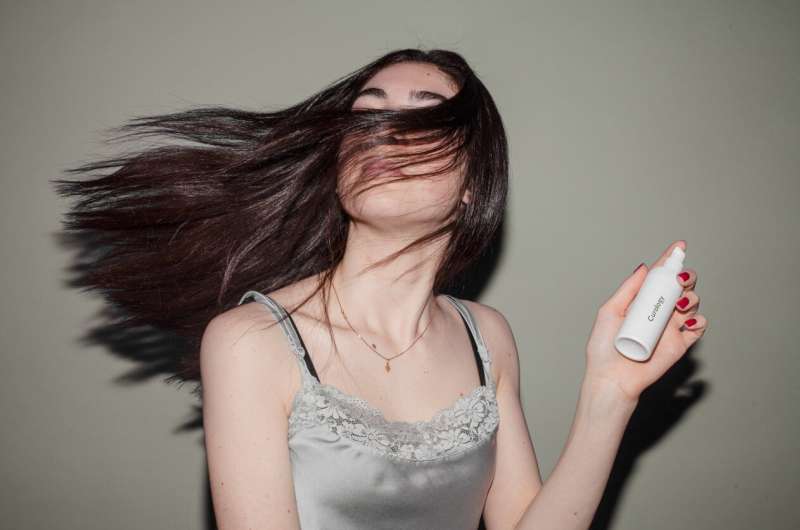This article has been reviewed according to Science X's editorial process and policies. Editors have highlighted the following attributes while ensuring the content's credibility:
fact-checked
peer-reviewed publication
trusted source
proofread
Hair relaxer use may affect ability to conceive

A first-of-its-kind study showed that use of chemical hair straighteners was associated with a slight reduction in the likelihood of pregnancy, and that Black and Hispanic individuals were more likely than other racial and ethnic groups to use these products early in life, more frequently, and for longer durations.
New research led by Boston University School of Public Health (BUSPH) suggests that chemical hair straighteners may affect a person's ability to become pregnant.
Published online ahead of print in the American Journal of Epidemiology, a first-of-its-kind study found that use of these hair straighteners also called "relaxers," is linked to a slight reduction in one's ability to conceive. Black, Hispanic, and mixed-race individuals were more likely to use hair straighteners, and thus, more likely to be exposed to the toxic chemicals in these products.
Current and former use of hair relaxers, greater frequency and duration of use, as well as sustained scalp burns from the products, were also associated with lower chances of becoming pregnant.
The study builds upon a growing body of research linking reproductive health issues with exposure to toxic, endocrine-disrupting chemicals found in beauty products. Phthalates, phenols, and parabens are a few of the chemicals in relaxers that may contribute to reduced fecundability.
The researchers caution that the full set of ingredients is rarely included on the product label and more data are needed to better understand the specific mechanisms by which relaxers may affect fertility. However, the study underscores the racial disparities in exposure to toxic chemicals in beauty care and the adverse health consequences that may occur as a result.
Societal pressure to conform to Eurocentric beauty norms and racial discrimination, such as restrictions on or prohibitions of Afrocentric hairstyles in the workplace and schools, contribute to disproportionate use of these toxic beauty products by individuals of color.
"Our work underscores the importance of expanding research on the reproductive health effects of beauty product use to promote environmental justice and increase health equity," says study lead author Dr. Lauren Wise, professor of epidemiology at BUSPH.
For the study, Dr. Wise and colleagues analyzed survey data on several aspects of hair relaxer use among pregnancy planners in the BUSPH-based Pregnancy Study Online (PRESTO), an ongoing study since 2013 that enrolls U.S. and Canadian pregnancy planners, and follows them from preconception through six months after delivery.
PRESTO participants provide baseline information on sociodemographics, lifestyle, and medical histories. For this study, more than 11,274 participants provided information on several aspects of hair relaxer use from 2014 to 2022.
Compared with those who had never used relaxers, participants who reported ever having used relaxers were more likely to be older, have less education and annual income, a higher BMI, smoke, be unmarried, be residents of the Southern U.S., and experience longer pregnancy attempt time at study enrollment.
Current and former hair relaxer use was highest among Black participants, followed by Hispanic participants. More than half of Black participants reported using their first relaxer before age 10 years, compared with 1-17 percent among other racial and ethnic groups.
Fertility rates were lowest among participants who used relaxers for at least 10 years or at least five times per year, but the study results did not show clear dose-response patterns for either association.
More information: Lauren A Wise et al, Use of chemical hair straighteners and fecundability in a North American preconception cohort, American Journal of Epidemiology (2023). DOI: 10.1093/aje/kwad079



















